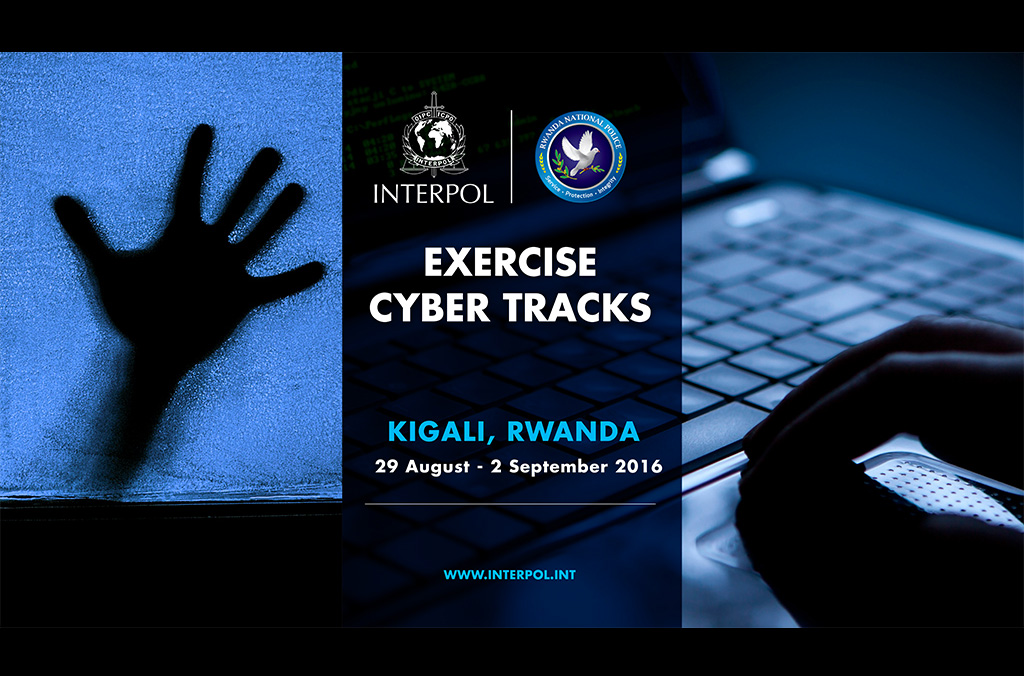KIGALI, Rwanda – Enhancing the ability of law enforcement to investigate cyber-enabled human trafficking is the focus of a regional table-top exercise organized by the Rwanda National Police (RNP) and INTERPOL.
Gathering some 90 participants from more than 30 countries, the five-day (29 August – 2 September) Exercise Cyber Tracks focuses on three areas: cyber-enabled crime and digital forensics; the use of INTERPOL’s global policing capabilities; and investigations into human trafficking and gender-based and sexual violence.
The transnational training exercise was designed by INTERPOL together with the RNP to combine classroom teaching and practical implementation of newly acquired skills during a simulated investigation.
"The Rwandan government is delighted to host the cyber-enabled crime exercise and thanks African countries for their trust. True to our policing tradition, actions and programmes must always be demand-driven; cyber-related crimes are at increase and this justifies not only why we are conducting this exercise, but also the decision by the Eastern African Police Chiefs Cooperation Organization(EAPCCO) to establish a regional cybercrime centre in Kigali, for which a foundation stone will be laid during the exercise," said Rwanda’s Inspector General of Police (IGP), Emmanuel Gasana.
Participants at the table-top exercise will use criminal investigation methodology and skills learned in training to address the practical challenges necessary to undertake cybercrime investigations.
“This exercise undertaken jointly with the RNP is unique as it focuses on two distinctly different yet related areas: human trafficking, a particularly pernicious crime that preys on the most vulnerable members of society, and cyber-enabled crime, which underpins all forms of crime,” said Noboru Nakatani, Executive Director of the INTERPOL Global Complex for Innovation (IGCI) in Singapore.
“Collecting, storing and analysing digital evidence from the mobile devices and computers of suspects is essential to any type of criminal investigation in the digital age, including in terms of admissible evidence in a court of law.”
“In the global fight against cybercrime and cyber-enabled crimes, it is vital that police have the knowledge and skills to deal with these crimes effectively,” added Mr Nakatani.
With the Internet presenting fast-growing opportunities for a range of cyber-enabled crimes, including financial crime, a joint operation last month by INTERPOL and the Nigerian Economic and Financial Crime Commission (EFCC) saw the arrest in Nigeria of the alleged head of an international criminal network behind thousands of online frauds worth more than USD 60 million and involving victims worldwide.
Via the IGCI, INTERPOL’s global capabilities to combat cybercrime include information sharing and analysis through its Cyber Fusion Centre, global coordination in cybercrime investigations, digital forensics through its Digital Forensics Library, and cybercrime training.




